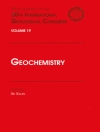Water managers rely on predicting changes in the hydrologic cycle on seasonal-to-interannual time frames to prepare for water resource needs. Seasonal to interannual predictability of the hydrologic cycle is related to local and remote influences involving land processes and ocean processes, such as the El Nio Southern Oscillation. Although advances in understanding land-surface processes show promise in improving climate prediction, incorporating this information into water management decision processes remains a challenge since current models provide only limited information for predictions on seasonal and longer time scales. To address these needs, the Global Energy and Water Cycle Experiment (GEWEX) Americas Prediction Project (GAPP) was established in 2001 to improve how changes in water resources are predicted on intraseasonal-to-interannual time scales for the continental United States. The GAPP program has developed a science and implementation plan to guide its science activities, which describes strategies for improving prediction and decision support in the hydrologic sciences. This report by the National Research Council provides a review of the GAPP Science and Implementation Plan, outlining suggestions to strengthen the plan and the GAPP program overall.
Board on Atmospheric Sciences and Climate & Committee to Review the GAPP Science and Implementation Plan
Review of the GAPP Science and Implementation Plan [PDF ebook]
Review of the GAPP Science and Implementation Plan [PDF ebook]
Cumpărați această carte electronică și primiți încă 1 GRATUIT!
Limba Engleză ● Format PDF ● Pagini 142 ● ISBN 9780309551212 ● Editura National Academies Press ● Publicat 2005 ● Descărcabil 3 ori ● Valută EUR ● ID 7146861 ● Protecție împotriva copiilor Adobe DRM
Necesită un cititor de ebook capabil de DRM












